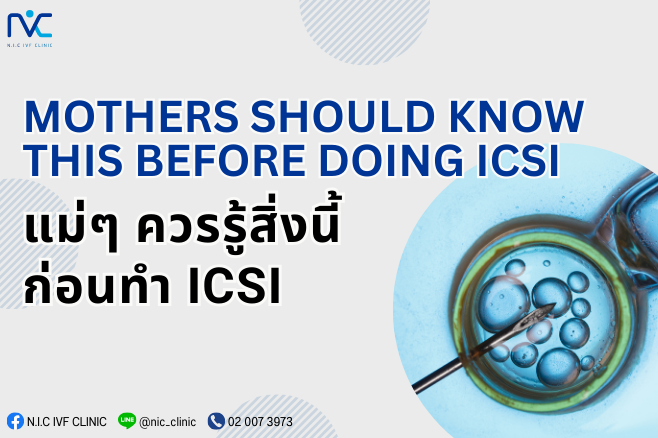NEWS & KNOWLEDGE
5 Risky Behaviors in Men That Can Harm Sperm Quality.

Couples who have been married for several years without having children may experience infertility due to certain behaviors or lifestyles. One contributing factor to infertility can be related to sperm health, such as low sperm count or weak sperm motility. These issues can be influenced by the male partner’s behavior. Risky behaviors that can reduce sperm quality include:
- Stress
Stress is a state of physical and mental imbalance and is one of the factors that can lower sperm quality. Stress affects hormone balance in the body. When stressed, the body releases cortisol, which can disrupt testosterone levels in men, leading to reduced sperm production and lower sperm quality.

- Alcohol Consumption and Smoking
Alcoholic beverages can damage the structure and motility of sperm. Additionally, nicotine and carbon monoxide from smoking can damage sperm DNA. These substances negatively impact sperm quality by reducing sperm count, decreasing motility, causing abnormal sperm morphology, and increasing DNA fragmentation.

- Activities That Increase Scrotal Heat
Increased heat in the scrotal area is one of the factors that can interfere with sperm production in the testes. Men should avoid activities that raise scrotal temperature, such as prolonged exposure to outdoor heat, long-distance cycling, extended motorcycle riding, activities that involve friction, and wearing tight clothing for extended periods.
- Excessive Exercise
Over-exercising can affect hormone levels, particularly by lowering testosterone levels. When testosterone levels are low, sperm production also decreases.
- Being Overweight
Being overweight can disrupt hormonal balance, especially testosterone levels, which in turn affects sperm production. Being overweight can lead to decreased sperm count, abnormal sperm motility, and abnormal sperm morphology, all of which contribute to infertility.
The risky behaviors mentioned above can contribute to male infertility. Therefore, if you are trying to conceive, it is recommended to minimize these behaviors. Doing so not only promotes long-term health but also helps ensure that the reproductive system functions properly.
By Assoc.Prof. Matchuporn Sukprasert
For more information, please contact us via:
LINE Official : @nic_clinic or https://lin.ee/Mmq6m2K
Tel: 02-007-3973 or 095-370-2483


